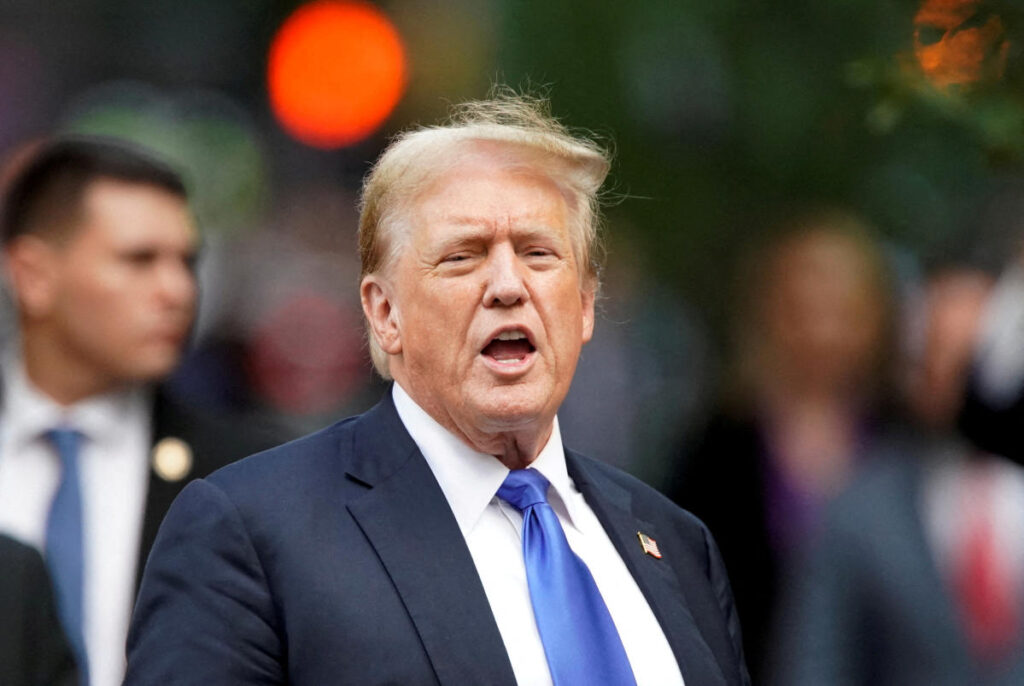The judge presiding over Donald Trump's trial on 34 felony counts of falsifying business records announced Monday that he will postpone the former president's sentencing until September to hear arguments on the Supreme Court's latest ruling on presidential immunity.
“Accordingly, the sentencing date of July 11, 2024 is void,” the judge said. Juan Merchan “The Court's judgment will be delivered on September 6, 2024, and if a judgment is still required, it will be postponed until September 18, 2024, at 10:00 a.m., for other proceedings.”
Lawyers for former President Donald Trump sent a letter to Marchan on Monday asking him to overturn the jury's guilty verdict on 34 felony counts of falsifying business records.
Their argument is that the Supreme Court's ruling on presidential immunity invalidates a verdict finding that Trump falsified business records to hide a $130,000 payment to adult film actress Stormy Daniels because prosecutors built their case in part on evidence from months after Trump took office.
Prosecutors from Manhattan District Attorney Alvin Bragg's office said they agreed to delay Trump's July 11 trial date but would explain to Marchan why the jury's verdict should stand.
“While we believe the defendant's claims are without merit, we do not oppose the defendant's request for leave to prosecute and his putative request to postpone sentencing pending a determination of the motion,” wrote Joshua Steinglass, one of the prosecutors in the case.
“Official business”?
Marchan was scheduled to announce his sentence just over a week after the jury's historic guilty verdict against the former president. Most analysts had expected Trump to avoid prison time because it was his first criminal conviction, but other factors made that uncertain, including Trump's multiple violations of a gag order issued by Marchan during the trial.
But Monday's Supreme Court decision on the issue of whether the president is protected from prosecution means Trump's sentencing will be delayed until at least September 18th.
The ruling and Marchan's statement also leave open the possibility that Trump may not face any retribution despite the New York jury's guilty verdict, because the Supreme Court has ruled that a president cannot be tried for crimes related to his official duties.
“The President is not above the law. But under our system of separated powers, the President cannot be prosecuted for the exercise of core Constitutional powers and enjoys at least a presumptive immunity from prosecution for acts of official conduct,” Chief Justice John Roberts wrote in the landmark decision.
Marchant will have to decide whether the fact that Trump sent repayment checks from the White House to his former lawyer, Michael Cohen, after he took office constituted official acts. He will also hear arguments from Trump's lawyers that much of the testimony in the case came from presidential aides and should not be admitted as evidence.
But last year a federal court rejected Trump's argument that presidential immunity protected him from prosecution in the hush-money case because his payment to Daniels was a private, not an official, act.
“The evidence overwhelmingly shows that this was a personal matter for the President — a cover-up of embarrassing events,” U.S. District Judge Alvin Hellerstein wrote. “Hush money paid to an adult film star is unrelated to, and in no way reflects the color of, the President's official business.”
Why is the timeline important?
While much of the evidence surrounding Trump's alleged dealings with National Enquirer publisher David Pecker and Cohen to suppress damaging stories about the 2016 presidential candidate took place before Trump was elected, a timeline of key events in the case shows many of them occurred after he was elected.
In its decision on Monday, the Supreme Court gave a president unusual discretion to argue that actions taken while in office are protected from prosecution. At the very least, the court has given Trump's lawyers a new avenue for appeal if Marchan rules against Trump after hearing their arguments.

